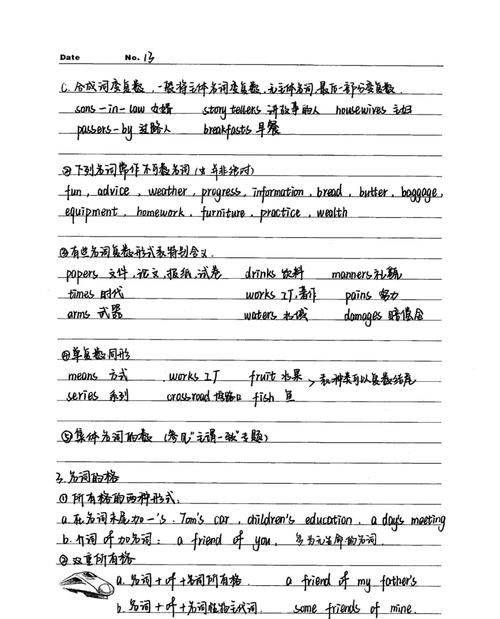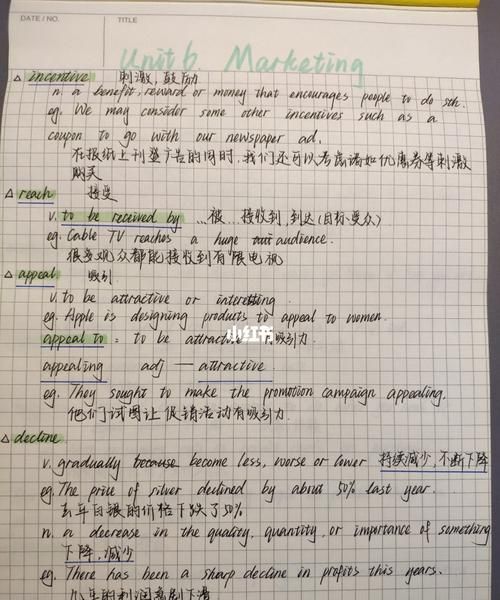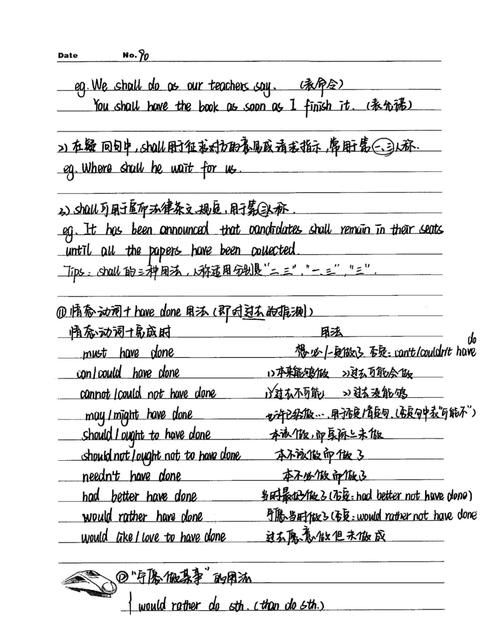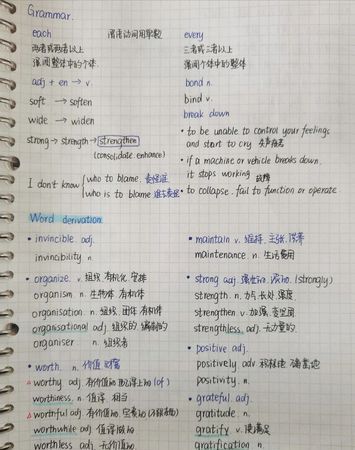本文目录
高一英语第一单元知识点总结
英语是高中时期比较重要的一门课程, 高一英语 是高中英语的基础,我们必须好好学习,牢记,这样才可以为以后的高二高三打好基础,高一时期打好英语基础尤为重要。以下是我给大家整理的高一英语知识点 总结 全,希望能对你有帮助!
高一英语相关知识点总结1
1.begoodto对……友好begoodfor对……有益;bebadto…/bebadfor…
2.addup加起来增加
addupto合计,总计
add…to把……加到……
3.not…until/till意思是“直到…才”
4.getsth/sbdone使……完成/使某人被……
5.calmdown平静下来
6.beconcernedabout关心,关注
7.当while,when,before,after等引导的时间状语从句中的主语与主句的主语一致时,可将从句中的主语和be动词省去。
Whilewalkingthedog,youwerecarelessanditgotloose.
8.cheatintheexam考试作弊
9.gothrough经历;度过;获准,通过
10.hideaway躲藏;隐藏
11.setdown写下,记下
12.Iwonderif…我不知道是不是…
12.onpurpose故意
13.sthhappentosb某人发生某事
sbhappentodosth某人碰巧做某事
itsohappenedthat……正巧碰巧
14.Itisthefirst(second…)that…(从句谓语动词用现在完成时)
15.inone’spower处于……的控制之中
16.It’snopleasuredoing…做…没有乐趣
It’snogood/usedoingsth.做某事是没好处/没用的
17.Shefounditdifficulttosettleandcalmdowninthehidingplace.it做形式宾语
18.sufferfrom患…病;遭受
19.so…that…/such…thay…
20.gettiredof…对…感到劳累疲惫
21.havesometroublewithsb/sth.在……上遇到了麻烦
22.getalongwithsb/sth.与某人相处
23.ask(sb)foradvice.(向某人)征求建议
24.make后接复合宾语,宾语补足语须用不带to的不定式、形容词、过去分词、名词等。常见的有以下几种形式:
makesb.dosth.让(使)某人做某事
makesb./sth.+adj.使某人/物…
makesb./oneself+v-ed让某人/自己被…
Whenyouspeak,youshouldmakeyourselfunderstood.
makesb.+n.使某人成为…
25.alone/lonely.单独的/孤独的
26.Iwouldbegratefulif…委婉客气提出请求
27.Whynotdo…=whydon’tyoudo…
高一英语相关知识点总结2
一、现在分词和过去分词的构成(形式)
外教一对一 一般式 doing being done
完成式 having done having been done
过去分词的构成:done
二、过去分词的用法
过去分词一般表示完成的和被动的动作,只有一种形式。
过去分词用法如下:
1.作定语 和现在分词作定语的用法相同。作定语用的过去分词如果是单词,一般放在名词的前面;如果是过去分词 短语 ,要放在名词的后面。
2.作表语
3.作宾语补足语
4.作状语
三、现在分词的用法
1. 作定语 作定语用的分词如果是单词,一般放在名词的前面。如果是分词短语,一般放在名词的后面,它的功用相当于定语从句。
2. 作表语
3. 作宾语补足语 分词在复合宾语中可作宾语补足语。可带这种复合宾语的动词有:see, watch, hear, feel, find, get, keep等。
高一英语相关知识点总结3
重点单词
1.honest adj.诚实的
2.ancient dj.古代的
3.compete vi.比赛
4.competitor n.竞争者
5.medal n.奖章
6.host vt.主办
7.magical adj. 魔术 的
8.interview vt.面谈
9.athlete n.运动员
10.admit vt.承认
11.set n.组
12.slave n.奴隶
13.stadium n.露天大型体育场
14.gymnasium n.健身房
15.replace vt.取代
16.prize n.奖
17.sliver n.银
18.physical adj.物理的
19.root n.根
20.relate vt.有关
21.sail vt.航行
22.poster n. 海报
23.advertise vt.做 广告
24.foolish adj.愚蠢的
25.promise vt.&n.答应
26.golden adj.金的
重点短语
1.take part in 参加
2.used to 过去常常
3.change one's mind 改变主意
4.play an important role in 在...中起重要作用
5.compete against/for 与...比赛
6.work out 计算出
7.make sure 有把握
8.a set of 一组
9.as well as 也;又
10.every four years 每四年
11.one after another 陆续地
12.all over the world 遍及世界
13.as a matter of fact 事实上
14.pick up 拾起
高一英语知识点总结全相关 文章 :
★ 高一英语必修一重要知识点总结笔记
★ 高中英语知识点总结大全
★ 高一英语必修一知识点汇总笔记
★ 高一英语必修一知识点归纳总结
★ 高一英语必修一知识点总结人教版
★ 高一英语必修知识点总结
★ 人教版高一英语知识点总结
★ 高一英语必修1知识点总结
★ 高一英语必修一知识点总结
★ 人教版高中英语必修一语法知识点总结

高一英语必修一第一单元知识点笔记
生要敢于理解挑战,经受得起挑战的人才能够领悟人生非凡的真谛,才能够实现自我无限的超越,才能够创造魅力永恒的价值。以下是我高一频道为你整理的《 高一英语 必修一知识点整理归纳》,希望你不负时光,努力向前,加油!
高一英语第一单元知识点笔记
1.be good to对……友好be good for对……有益;be bad to…/be bad for…
2.add up加起来 增加
add up to合计,总计
add…to把……加到……
3.not…until/till意思是“直到…才”
4.get sth/sb done使……完成/使某人被……
5.calm down平静下来
6.be concerned about关心,关注
7.当while,when,before,after 等引导的时间状语从句中的主语与主句的主语一致时,可将从句中的主语和be动词省去。
While walking the dog,you were careless and it got loose.
8.cheat in the exam
9.go through经历;度过;获准,通过
10.hide away躲藏;隐藏
11.set down写下,记下
12.I wonder if…我不知道是不是…
12.on purpose故意
13.sth happen to sb某人发生某事
sb happen to do sth某人碰巧做某事
it so happened that……正巧 碰巧
14.It is the first(second…)that…(从句谓语动词用现在完成时)
15.in one’s power处于……的控制之中
16.It’s no pleasure doing…做…没有乐趣
It’s no good/use doing sth.做某事是没好处/没用的
17.She found it difficult to settle and calm down in the hiding place.it做形式宾语
18.suffer from患…病;遭受
19.so…that…/such…thay…
20.get tired of…对…感到劳累 疲惫
21.have some trouble with sb/sth.在……上遇到了麻烦
22.get along with sb/sth.与某人相处
23.ask(sb)for advice.(向某人)征求建议
24.make后接复合宾语,宾语补足语须用不带to的不定式、形容词、过去分词、名词等。常见的有以下几种形式:
make sb.do sth.让(使)某人做某事
make sb./sth.+adj.使某人/物…
make sb./oneself+v-ed 让某人/自己被…
When you speak,you should make yourself understood.
make sb.+n.使某人成为…
25.alone /lonely.单独的/孤独的
26.I would be grateful if…委婉客气提出请求
27.Why not do…=why don’t you do…
高一英语第一单元知识点笔记
1.because of因为……(注意和because 的区别)
2.even if(=even thoug)即使,用来引导让步状语从句
3.come up走上前来,走近,发生,出现 come up with 追上,赶上,提出
4.communicate with sb和某人交流
5.be different from…与……不同
be different in…在……方面不同
Most of my projects are different in performance.我多数作品的演奏风格都不同。
6.be based on以……为基础
7.at present目前,眼下for the present眼前;暂时
8.make(good/better/full)use of
9.the latter后者 the former前者
10.a large number of大量的 the number of…的数量
11.such as例如
12.hold on坚持住,握住不放;(打电话时)等—会
13.…you will hear the difference in the way(that/in which)people speak.
你会听出人们在说话时的差异。
14.play a role/part(in)在…中担任角色;在…中起作用;扮演一个角色
15.the same…as…与……一样
16.at the top of…在…顶上
at the bottom of在……底部
17.bring up教养,养育;提出
18.request sb(not)to do sth.要求某人做/不要做某事
19.be satisfied with…对……感到满意,满足于
20.suggest v.(request,insist…)
I suggested you do what he says.我建议你按照他说的去做。
I suggest you not go tomorrow.我想你明天还是不要去了。
His pale face suggested that he was in bad health.他苍白的脸色暗示了他身体不好。
注意:insist 意思为“坚持要求”时后面的that从句用虚拟语气;如果insist 意为“强调,坚持认为”的时候,从句可以用任何所需要的时态。例如:She insisted that she didn’t tell a lie.她坚持认为她没撒谎。
21.according to…按照…根据…
高一英语第一单元知识点笔记
1.prefer
Prefer doing…to doing…
Prefer to do rather than do
2.advantages/disadvantages优势/劣势
2.Ever since middle school,my sister Wang Wei and I have dreamed about taking a great bike trip.从高中起,我姐姐王维和我就一直梦想做一次伟大的自行车旅行。
连词since引导的时间状语从句用一般过去时,介词since与时间点连用
It is/has been+一段时间+since+一般过去时自从……至今已经多久了。
3.persuade sb to do sth=persuade sb into doing sth说服某人做某事
4.强调句型It is/was+被强调部分+that/who
强调句型可以强调除谓语动词以外的任何 句子 成份。一般来说,如果被强调部分是人时,用连词that或who;如果被强调部分是物,只能用连词that。
not…until的强调句
5.be fond of喜欢,喜爱
6.Although尽管,虽然,引导让步状语从句
① although 从句多在句首,though 从句可在主句前、中、后任何位置,而且though 可以作副词用于句末,作“但是,不过”讲,而although 无此用法。
② as though(仿佛,好像),even though(即使,尽管)中不能用although。
③ though 引导的让步状语从句可以倒装(将表语、状语、情态动词后的动词原形前置到句首,此用法同as),而 although 不可以。
7.insist on doing sth/sth.一定要、坚持主张
She insists on getting up early and playing her radio loudly.
她老是一大早起来把收音机音量开大
11.care about关心 在乎
care for喜欢,照料,照顾
12.change one’s mind改变主意
13.experience经历/ 经验
14.Once可作为从属连词,作“一(旦)……就……”解,连接一个表示时间的状语从句。从句中常用一般现在时现在完成时表将来。
Once you have begun you must continue.
15.give in让步 give up 放弃
16.instead of代替,而不是
17.make up one’s mind to do下定决心做某事
18.a large parcel of一大包
19.as usual像往常一样
20.put up our tent搭帐篷
21.stay awake睡不着,醒着stay up熬夜
22.for company做伴
23.lie beneath the stars躺在星空下
24.can hardly wait to do=can’t wait to do迫不及待做某事
25.go in the right direction走正确的方向
26.at a very slow pace.以很慢的速度
27.be similar to类似于
28.afford to do sth付得起,能承担
29.be tired from因……而疲劳be tired of对……厌倦
30.be in high spirits喜气洋洋,兴高采烈
31.come true实现,成真
32.give sb some advice on doing...
33.a guide to………的指南
34.on a tour在游览中,在巡演中
35.in detail详细地
高一英语第一单元知识点笔记相关 文章 :
★ 高一英语必修一知识点汇总笔记
★ 高一英语第一单元总知识点归纳
★ 高一英语必修一重要知识点总结笔记
★ 高一英语必修一知识点归纳总结
★ 高一英语必修一知识点总结人教版
★ 高一英语必修一知识点总结外研版
★ 人教版高一英语必修一第一单元知识点
★ 高一英语必修一unit1知识点
★ 高一英语语法知识点总结
★ 人教版高中英语必修一语法知识点总结

高一英语必修一必背课文内容
在学习上,听老师讲课是获取知识的捷径。为提高课堂效率,听课时应保持精力旺盛,头脑清醒,这是学好知识的前提条件。老师就是名如其字,教会我们想不通的知识,所以请好好学习吧下面是我给大家带来的 高一英语 必修一必背知识点,希望能帮助到你!
高一英语必修一必背知识点1
1.Now imagine there has been a big earthquake. 现在,假设有一次大地震。
“There +be +主语+ 其它 成分”结构中there为引导词,本身无意义,谓语动词按照就近一致原则。其它相似句型还有:
There happen to be 碰巧有 There seems/appears to be 好像有
There is likely to be 可能有 There may/might be 也许有
There must be 一定有 There can’t be 不可能有
There is said/reported to be 据说/据报道有
There used to be 曾经有 There is sure/certain to be 一定有
2. happen to. It (so) happened that…
Did you hear what happened to David last night?
你听说大卫昨天晚上发生什么事了吗?
What will happen to the children if Peter and Alice break up?
如果彼得和爱丽丝离婚孩子们将怎么办?
I happened to see Peter on the way to the bookstore yesterday.
昨天我去书店的路上碰巧遇见了彼得。
It so happened that I saw Peter on the way to the bookstore yesterday.
昨天我去书店的路上碰巧遇见了彼得。
I happened to be out when he called. 他来访时,恰巧我出去了。
(= It happened that I was out when he called.)
I happened on just the thing I had been looking for. 我偶然发现了我所要找的东西。
3. right away毫不迟疑,立刻
He is ill; you should call in the doctor right away. 他病了, 你应该立即请大夫来。
4. A smelly gas came out of the cracks. 裂缝里冒出臭气。
5. In the farmyards, the chickens and even the pigs were too nervous to eat.
农家大院里,鸡甚至猪都紧张得不想吃食。
6. But the one million people of the city, who thought little of these events, were asleep as usual that night.
但是,这个城市的一百万居民都没有把这些情况当一回事,当天晚上照常睡着了。
7. It seemed as if the world was at an end. 世界似乎到了末日。
从句表示“(在某人)看来好像;似乎”
① It seems/looks/appears as if/though…看起来好像…
② Sb./Sth. looks as if/though…(不用seem/appear)
③ There seems/appears(to be)…(不用 look)
There appears to have been a mistake. =It appears that there has been a mistake.
④ It seems so. =So it seems.看来似乎是这样。
8. In fifteen terrible seconds a large city lay in ruins.
在可怕的15秒钟内,一座大城市就沦落为一片废墟之中。
9. Two-thirds of them died or injured during the earthquake.
三人之二的人在地震中死去或受伤。
10. The number of people who were killed or injured reached more than 400,000.死伤的人数达到40多万。
10. Some of the rescue workers and doctors were trapped under the ruins.
有些医生和救援人员被困在废墟下面。
11. All hope was not lost.不是所有的希望都破灭了。该句为部分否定。All, both, everyone, everybody, everything 以及every+名词都表示全部肯定;但当not 在它们之前或之后都表示部分否定。no one, none nobody, nothing, not…any, 以及 no+名词都表示全部否定。如:
① Both of them haven’t read this story.并非他们二人都看过这个 故事 。
② All of the boys are clever, but none of them can work out this problem.
这些男孩都很聪明,但没有一个人能解出这道题。
③ All bamboo doesn’t grow tall.=Not all bamboo grows tall. 并非所有的竹子都长的高。
12. Workers built shelters for survivors whose homes had been destroyed.
救援人员为那些家园被毁的幸存者盖起了避难所。
13. under the weight of在……重压下,迫于
14. in the open air 在户外,在野外,露天 in the air 在空中,悬而未决
15. take turns to do sth依次,轮流做某事 in turn 依次地,轮流地
It is your turn now.现在轮到你了。
No one is allowed to get his ticket out of turn. 任何人都不准不按次序买票。
16. be shocked at对……感到震惊
17. be proud of以……为自豪
18. Our office would like to have you speak to the park visitors on July 28
19. express one’s thanks to sb /for sth…对/因……表示感谢
20. without warning 毫无预兆
21. next to紧接着,相邻,次于
22. get away from…避免,摆脱,离开
23. disarster-hit areas灾区
24. raise money 募捐,筹款
25. Listening to English is a very important skill because it is only when we understand what is said to us that we can have a conversation with somebody.
听英语是一项很重要的技能,因为只有当我们懂得别人给我们说什么我们才能与他交谈。
26. It is believed that on the surface of the earth are a number of plates.
人们认为地球表面是一些板块。
27. hold up举起;托住;支撑;使停滞;耽搁;提出;阻挡;列举,推举;(理论等)经得住
Women can hold up half of the sky.妇女能顶半边天。
28. make up弥补, 虚构, 缝制, 整理, 包装, 和解, 编辑, 化妆,补足,拼凑
Farm workers make up only a small section of the population.
农民只占人口的一小部分.
The boy made up a story; it was not true. 男孩编了个故事,这故事不是真的。
29. The judge gave a prize and his congratulations to the cyclist who won the competition.裁判把奖金颁给赢得比赛的自行车选手,并向他祝贺。
30. The miners who had been trapped in the mine for two days were finally rescued.被困在煤矿里两天的矿工们最后得到了营救。
31. The reporter recognized that the girl who was so frightened was trying to avoid the question.记者意识到女孩很害怕,而且尽力地回避问题。
32. The big fire destroyed two shops which are about four blocks from here.
大火摧毁了离这儿四个街区的两个商店。
33. I can’t express how I am feeling at the moment. 我无法表达我现在的感觉。
34. It is said but true that people die in earthquakes from falling furniture and bricks. 据说但是真实的,在地震中人们死于倒落的家具和砖块。
35. be fixed to…被固定到……
36. be tied to … 被绑在……
高一英语必修一必背知识点2
一、present simple and present continuous 一般现在是和现在进行时
1,present simple: 反复进行的,经常性的动作(惯例习惯)
Eg, He watches soap operas.
及状态 I live in Budapest.
一般现在时常和下列时间状语连用:always, usually, from, time to time, twice a week, rarely, seldom, once a month, never.
2,现在进行时:说话时正在进行的动作(现在,此刻)
一定时间段内经常进行的动作
和现在进行时连用的时间状语有just, now, at the moment, at present.
二、future:arrangements and intentions 将来的安排和打算
1、be going to 表示打算要做的事情。
2、现在进行时表示已经确定或安排好事情。
Eg, I’m getting married in June.
3、一般现在是表示不可改变的官方活动或时间表
The summer term begins on the 15th of February.
三、past simple and past continues
1,psat simple :一般过去时,表示过去完成的动作或过去的情境和习惯。
Eg: She climb the stairs and went to her room.
用一般过去时要在规则动词词尾加-ed,或用不规则动词的过去式,一般过去式的疑问句和否定句用did 和didn’t 加动词原形。
2、past continuous过去进行时:过去某段时间正在进行的动作形成某些事件发生的情境动作。
Eg, It was raining during the whole match.
当过去进行时和一般过去时出现在同一个 句子 中时,过去进行时描述故事发生的背景,儿一般过去时则报道该事件。
Eg, We driving along a country lane when, suddenly a car drove past us.
Form: 过去进行时的结构是:主语+was /were +动词-ing形式。
Eg, The driver was sitting behind the wheel.
四、present perfect and past simple。现在完成时和一般过去式,现在完成时表示发生在过去的事情对现在依然有明显的影响
发生在过去的动作但是不知道动作发生的时间或对动作发生的确切时间不感兴趣。
现在完成时经常和下列时间状语连用:
Before, ever, never, already, and , yet. already 用于肯定句,yet 用于疑问句和否定句。
Venus and Serena have played each other before.(重要的事他们过去进行了比赛,但是何时比赛并不重要—现在完成时)
Venus and Serena have played each other in June 1999.( 我们知道此事发生的确切时间—一般过去时)
五、The passive 被动语态
在下列情况下使用被动语态:
1、不知道耶不需要知道谁做的这件事。
2、动作的执行者“显而易见”
3、动作本身比动作执行者更重要或不想指出谁做的这件事。
4、在书面语特别是在科技 报告 、报刊 文章 中被动语态比主动语态更正式。
Form:
Tense时态 form 形式 +past
一般现在时 am/is/are +past participle 过去分词
现在进行时 am/is/are being +pp
现在完成时 have/has been +pp
一般过去时 was/were +pp
过去进行时 was/were being +pp
六、have to/not have to, can/can’t, ought to/ought not to uses 用法:
have to 用来表示义务责任,You have to pass your test before you can drive.
Don’t have to 表达不必:We don’t have to wear uniforms at our school.
Can 用来表示允许或请求许可或者表示某事可能发生。
You can buy CDs at the market.
Can’t 表示禁止或不可能:You can’t go out tonight.
Ought to 表示应该做某事。You ought to visit your grandparents this weekend.
Ought not to 表示不应该做某事You ought not to walk alone at night.
Form 形式
can/can’t, have to/not have to 及ought to/ought not to 后用动词原形。
现在完成时,一般现在时,一般过去时
很多语言都有现在完成时态,因此常将它和一般现在时混淆,在英语中,用现在完成时描述发生在过去但对现在又影响的事件。如果涉及到过去某时间,则要用一般过去时。
如果过去事件的确切时间或日期不重要,也可以用现在完成时。
高一英语必修一必背知识点3
get on well with sb; like to be with students;
be gentle with us; be kind to sb;
be a strict teacher; be strict with one’s pupils;
be strict in work
We think of him (her) as…; help sb with sth;
praise sb for sth…; blame sb for sth..
give advice on…; question sb on…
be satisfied with…
correct the students’ homework carefully and prepare for the next day; give sb a lot of work;
try to teach sb good study habits; make one’s lessons lively and interesting; teach sb. sth.;
teach sb to do sth.
devote all one’s time to work;
admire (sb.for) his devotion to the cause of education
佩服他对于 教育 事业的献身精神。
高一英语必修一必背知识点相关文章:
★ 高一英语必修一知识点归纳总结
★ 高一英语必修一知识点汇总笔记
★ 高一英语必修一重要知识点总结笔记
★ 高一英语必修一必背句型
★ 高中英语必修一必备知识点
★ 高一英语必修一必背句型汇总
★ 高一英语必修一重点短语人教版
★ 高一英语必修一知识点梳理
★ 高一英语必修一必背句型汇总
★ 高一英语必修一必背句型

高一英语必修一语法知识点总结
在学习上,要正确分析自己:目前学习状态,优势与劣势,问题,问题原因,解决办法,时间分配等。然后提出相应的目标,并制定达到目标的详实计划。以下是我给大家整理的 高一英语 教科书的必修一知识点 总结 ,希望能帮助到你!
高一英语教科书的必修一知识点总结1
1.because of因为……(注意和because 的区别)
2.even if(=even thoug)即使,用来引导让步状语从句
3.come up走上前来,走近,发生,出现 come up with 追上,赶上,提出
4.communicate with sb和某人交流
5.be different from…与……不同
be different in…在……方面不同
Most of my projects are different in performance.我多数作品的演奏风格都不同。
6.be based on以……为基础
7.at present目前,眼下for the present眼前;暂时
8.make(good/better/full)use of
9.the latter后者 the former前者
10.a large number of大量的 the number of…的数量
11.such as例如
12.hold on坚持住,握住不放;(打电话时)等—会
13.…you will hear the difference in the way(that/in which)people speak.
你会听出人们在说话时的差异。
14.play a role/part(in)在…中担任角色;在…中起作用;扮演一个角色
15.the same…as…与……一样
16.at the top of…在…顶上
at the bottom of在……底部
17.bring up教养,养育;提出
18.request sb(not)to do sth.要求某人做/不要做某事
19.be satisfied with…对……感到满意,满足于
20.suggest v.(request,insist…)
I suggested you do what he says.我建议你按照他说的去做。
I suggest you not go tomorrow.我想你明天还是不要去了。
His pale face suggested that he was in bad health.他苍白的脸色暗示了他身体不好。
注意:insist 意思为“坚持要求”时后面的that从句用虚拟语气;如果insist 意为“强调,坚持认为”的时候,从句可以用任何所需要的时态。例如:She insisted that she didn’t tell a lie.她坚持认为她没撒谎。
21.according to…按照…根据…
高一英语教科书的必修一知识点总结2
一、present simple and present continuous 一般现在是和现在进行时
1,present simple: 反复进行的,经常性的动作(惯例习惯)
Eg, He watches soap operas.
及状态 I live in Budapest.
一般现在时常和下列时间状语连用:always, usually, from, time to time, twice a week, rarely, seldom, once a month, never.
2,现在进行时:说话时正在进行的动作(现在,此刻)
一定时间段内经常进行的动作
和现在进行时连用的时间状语有just, now, at the moment, at present.
二、future:arrangements and intentions 将来的安排和打算
1、be going to 表示打算要做的事情。
2、现在进行时表示已经确定或安排好事情。
Eg, I’m getting married in June.
3、一般现在是表示不可改变的官方活动或时间表
The summer term begins on the 15th of February.
三、past simple and past continues
1,psat simple :一般过去时,表示过去完成的动作或过去的情境和习惯。
Eg: She climb the stairs and went to her room.
用一般过去时要在规则动词词尾加-ed,或用不规则动词的过去式,一般过去式的疑问句和否定句用did 和didn’t 加动词原形。
2、past continuous过去进行时:过去某段时间正在进行的动作形成某些事件发生的情境动作。
Eg, It was raining during the whole match.
当过去进行时和一般过去时出现在同一个 句子 中时,过去进行时描述 故事 发生的背景,儿一般过去时则报道该事件。
Eg, We driving along a country lane when, suddenly a car drove past us.
Form: 过去进行时的结构是:主语+was /were +动词-ing形式。
Eg, The driver was sitting behind the wheel.
四、present perfect and past simple。现在完成时和一般过去式,现在完成时表示发生在过去的事情对现在依然有明显的影响
发生在过去的动作但是不知道动作发生的时间或对动作发生的确切时间不感兴趣。
现在完成时经常和下列时间状语连用:
Before, ever, never, already, and , yet. already 用于肯定句,yet 用于疑问句和否定句。
Venus and Serena have played each other before.(重要的事他们过去进行了比赛,但是何时比赛并不重要—现在完成时)
Venus and Serena have played each other in June 1999.( 我们知道此事发生的确切时间—一般过去时)
五、The passive 被动语态
在下列情况下使用被动语态:
1、不知道耶不需要知道谁做的这件事。
2、动作的执行者“显而易见”
3、动作本身比动作执行者更重要或不想指出谁做的这件事。
4、在书面语特别是在科技 报告 、报刊 文章 中被动语态比主动语态更正式。
Form:
Tense时态 form 形式 +past
一般现在时 am/is/are +past participle 过去分词
现在进行时 am/is/are being +pp
现在完成时 have/has been +pp
一般过去时 was/were +pp
过去进行时 was/were being +pp
六、have to/not have to, can/can’t, ought to/ought not to uses 用法:
have to 用来表示义务责任,You have to pass your test before you can drive.
Don’t have to 表达不必:We don’t have to wear uniforms at our school.
Can 用来表示允许或请求许可或者表示某事可能发生。
You can buy CDs at the market.
Can’t 表示禁止或不可能:You can’t go out tonight.
Ought to 表示应该做某事。You ought to visit your grandparents this weekend.
Ought not to 表示不应该做某事You ought not to walk alone at night.
Form 形式
can/can’t, have to/not have to 及ought to/ought not to 后用动词原形。
现在完成时,一般现在时,一般过去时
很多语言都有现在完成时态,因此常将它和一般现在时混淆,在英语中,用现在完成时描述发生在过去但对现在又影响的事件。如果涉及到过去某时间,则要用一般过去时。
如果过去事件的确切时间或日期不重要,也可以用现在完成时。
高一英语教科书的必修一知识点总结3
1. win, beat, defeat 表示获胜、取胜的词语
(1) win v. 赢……,获胜,接比赛或奖项 win a game / a prize / an honor / a race. / Our team won the game 8 to 7. / He won by five points. / He won her love at last. / He won the first place in the competition.
(2) beat + 对手,表打败(尤指体育比赛) I can easily beat him at golf.
(3) defeat 表战胜,接对手The enemy was defeated in the battle.
2. in the end, finally, at last
三者均可表示“(经过周折、等待、耽误)最后,终于”之意。不同的是:
finally 一般用在句中动词前面,而 at last 与 in the end 的位置则较为灵活;
三者中at last 语气最为强烈,且可单独作为感叹句使用。After putting it off three times, we finally managed to have a holiday in Dalian. / At last he knew the meaning of life. / At last! Where on earth have you been? / But in the end he gave in.
另外,finally还可用在列举事项时,引出最后一个内容,相当于lastly。 Firstly, we should make a plan; secondly, we should carry it out; finally we should make a conclu- sion.
3. by sea, by the sea, in the sea, on the sea, at sea
(1) by sea “走海路,乘船”,用来表示交通方式,同 by ship 同义。 These heavy boxes should be sent by sea.
(2) by the sea “在海边”,相当于 by (at) the seaside。The children enjoyed themselves by the sea on Children's Day.
(3) in the sea “在海里,在海水中” There are many plants and animals in the sea.
(4) on the sea “在海面上”,“在海岸边”。I want to live in a town with a beautiful position on the sea.
(5) at sea 在海上;在航海 When he woke up, the ship was at sea.
4. be afraid, be afraid to do sth., be afraid of (doing) sth.
(1) be afraid 意为“担心,害怕”,多用于口语,常用来表示一种歉意,或遗憾,后可接 so 或 not,也可接 that 从句。I'm afraid (that) 其语意相当于 I'm sorry, but...。
-- Are we on time? 我们准时吗? -- I'm afraid not. 恐怕不准时。I'm afraid you'll get caught in the rain.
(2) be afraid to do sth 常表示“由于胆小而不敢做某事”。She is afraid to be here alone. / He is afraid to jump into the river from the bridge.
(3) be afraid of (doing) sth. 常表示“担心或害怕某事(发生)”。I was afraid of hurting her feelings.
5. live, living, alive, lively
(1) live adj.
① 活的;活生生的;(只修饰生物;只作前置定语) The laboratory is doing experiments with several live monkeys.
② 实况直播的 (不是录音)It wasn't a recorded show. It was live.
③ 带电的;燃着的;可爆炸的 This is a live wire.
(2) living adj. 活着的,有生命的(作表语或定语) She was, he thought, the best living novelist in England. / The old man is still living. (或alive)
(3) alive adj. ① 活着的;② 有活力的;有生气
作后置定语:Who's the greatest man alive?
作表语:Was the snake alive or dead? / My grandmother is more alive than a lot of young people.
作补语:Let's keep the fish alive.
(4) lively adj. 活泼的;有生气的;活跃的(作表语或定语) The music is bright and lively.
高一英语教科书的必修一知识点总结相关文章:
★ 高一英语必修一知识点归纳总结
★ 高一英语必修一知识点汇总笔记
★ 人教版高一英语必修一知识点总结
★ 高一英语必修一知识点总结
★ 人教版高中英语必修一语法知识点总结
★ 高一英语必修一知识点总结人教版
★ 高一英语必修一重要知识点总结笔记
★ 高一英语必修一知识点总结外研版
★ 人教版高一英语必修一知识点
★ 人教版高一英语必修一知识点整理

以上就是关于大一英语知识点笔记 ,高一英语第一单元知识点总结的全部内容,以及大一英语知识点笔记 的相关内容,希望能够帮到您。
